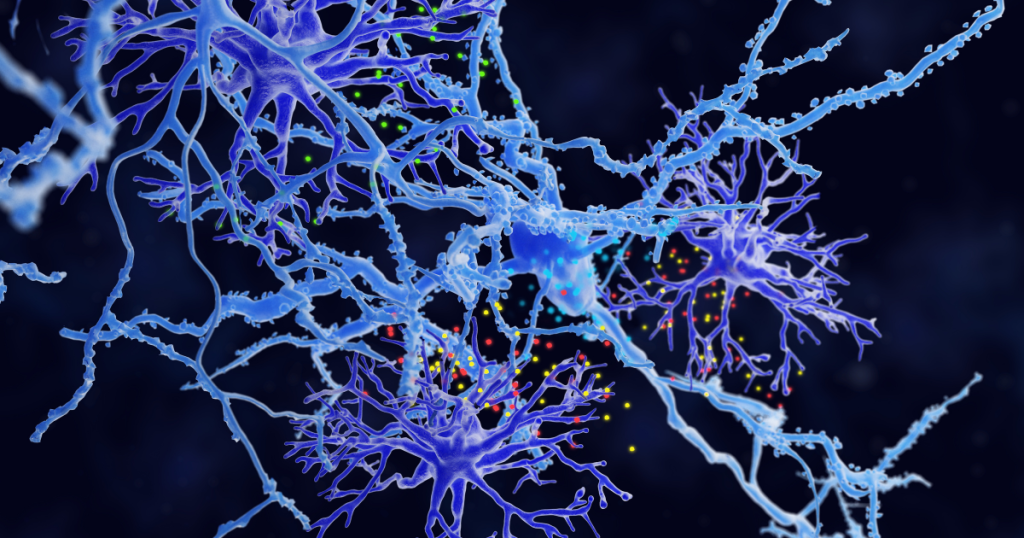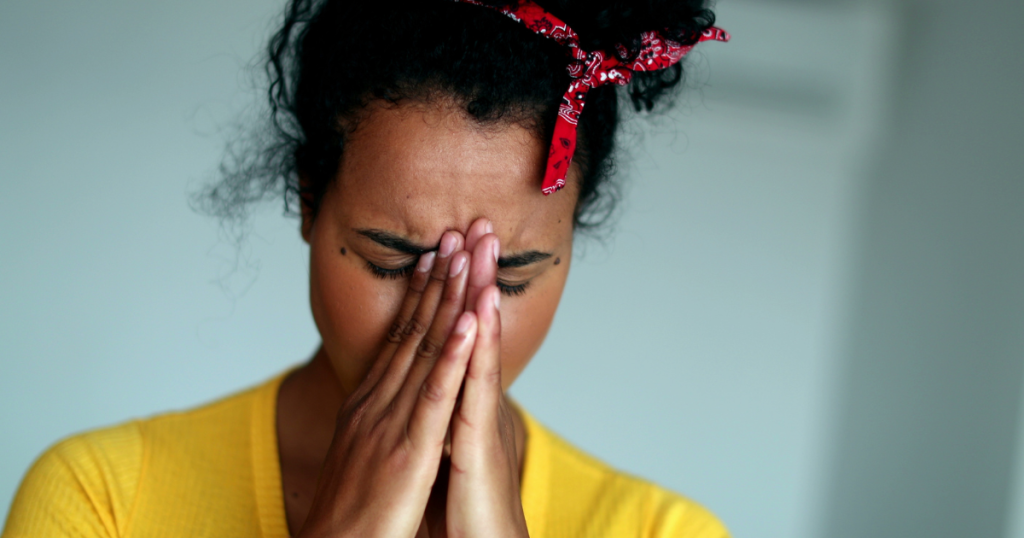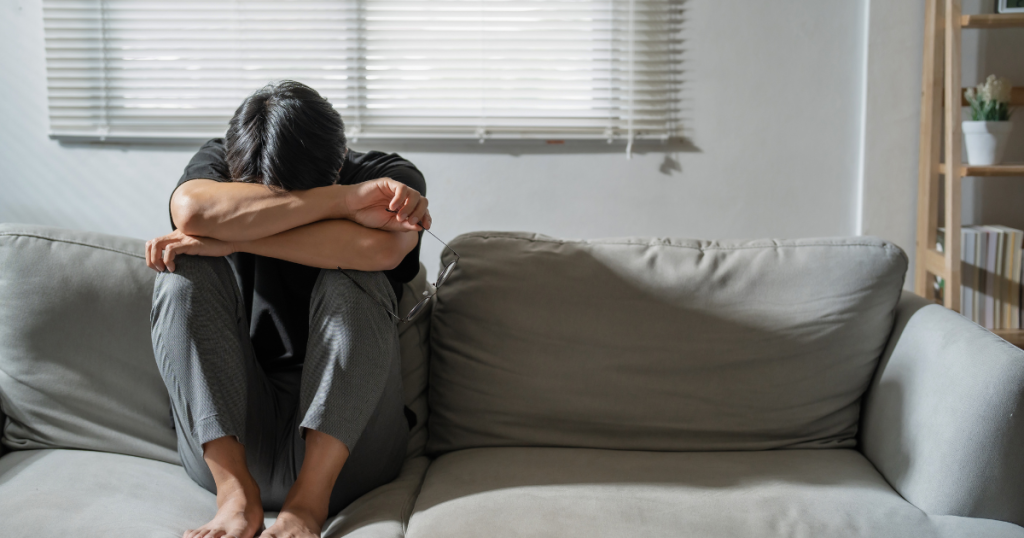How do you know when it’s time to talk with your doctor about medication to treat anxiety and depression?
First things first. To treat something, it’s helpful to know what the “something” is and if it has a name.
So let’s first define anxiety and depression. After that we’ll address talking with your doctor about medication to treat anxiety and depression.
Anxiety

Occasional anxiety is normal. It’s natural, for example, to have anxiety preparing for an exam, meeting, or other important event.
Generally, feeling anxious at times is not in and of itself problematic. In fact, anxiety can actually help you stay energized, motivated, and well prepared – depending on its intensity.
Anxiety is a problem when it happens a lot, regardless of what’s going on in your life, and/or when it causes distress.
Anxiety is especially problematic when it affects other areas of your life, including school, work, and family.
There are different types of anxiety. Often they include negative thinking and ‘what if’ scenarios.
What are common signs of anxiety that indicate it’s time to seek help?
- concentration difficulties
- restlessness
- irritability
- sleep problems
- muscle tension and other physical symptoms such as a pounding heart or headaches.
Often the first place to seek help is with a psychotherapist. Together, you and the therapist can discuss when it’s time to talk with your doctor about medication to treat anxiety (and depression). This especially makes sense if you know a therapist with whom you feel comfortable talking.
Another resource is your primary care doctor (PCP). This option may make more sense than finding a therapist on your own, especially if you have a relationship with your PCP.
Meeting with your PCP is also a good idea so you can have lab work done to rule out physical causes, such as hyperthyroidism.
Depression

All of us at times feel sad or discouraged. Depression is more than that, however, and it can last days, weeks, months, or years, especially if left untreated.
To have clinical depression means you are either uninterested in things you used to enjoy and/or have had a depressed mood for at least two weeks.
Common symptoms, in addition to lack of interest and/or feeling down, include:
- sleep or appetite changes
- loss of energy
- poor concentration
- indecision
- feeling worthless
It’s important to seek help for these symptoms, as they can cause significant distress and affect your relationships at home, school, work, and in other important areas.
The treatment options for depression are the same as those discussed above for anxiety.
Whether or not medication is the best treatment for you depends on a lot of factors. Some considerations include the severity of depression and its history, your age, and personal preferences for treatment.
Most people do best with a combination of antidepressants and psychotherapy.
It’s possible to have depression without anxiety, anxiety without depression, or both at the same time.
How Antidepressants Work
Most antidepressants slow down the removal of certain chemicals, called neurotransmitters, in the brain. You need neurotransmitters for normal brain function.
Serotonin is an example of a neurotransmitter. Selective serotonin reuptake inhibitors (SSRIs) form a common group of antidepressant medications.
Another example is serotonin-norepinephrine reuptake inhibitors (SNRIs).
Antidepressants are often used to treat anxiety, especially when depression and anxiety occur together.
How Anti-anxiety Medications Work
The symptoms of anxiety vary depending on the type of anxiety a person has. Proper diagnosis is useful so the medication with the best chance of being helpful is the first medication to try.
Many SSRIs and SNRIs treat both depression and anxiety. Both groups of medications target mood and stress.
Medication To Treat Anxiety And Depression

Anti-anxiety and antidepressant medications are legitimate prescription drugs and not simply “happy pills.” The medications have risks and benefits and are taken under a doctor’s supervision.
People of all ages vary in their comfort levels with taking medication. Side effects are often a concern.
Unfortunately, so is the belief that taking medication indicates weakness or defeat.
Some people are uncomfortable talking candidly with their doctors about mental health. Acknowledging out loud the pain of depression or the crippling effects of anxiety can be a lot more difficult than acknowledging the pain of a broken limb.
(We may like to believe that, as a society, we have “come so far” in acknowledging, talking about, and treating mental illness. But we have so far to go before we are where we need to be.)
Here are the 5 most common reasons people give for why they do not want to discuss medication:
- “I shouldn’t need medication. I should be able to manage without it.”
- “What if I take it and become numb and lose touch with who I really am?”
- “Medication will cause me to gain weight.”
- “Medication causes suicide.”
- “I don’t want to become dependent on medication.”
There is no shame in taking medication for anxiety and/or depression.
Medication is definitely not a magic bullet for feeling better. But it can help, especially when it’s part of a comprehensive plan that includes psychotherapy.
Regarding the notion that you ‘should’ be able to manage without medication: Says who? Where did you hear that? Is the same thing true for other people, or does it just apply to you?
Taking medication is not a sign of weakness. It is treating a disorder or at least helping to reduce symptoms.
The idea that you could lose touch with who you are is ironic.
When depressed and anxious, people are prevented from being who they are. Their true selves are held hostage by depression and anxiety.
Concerns about weight gain are common. Some medications for depression and anxiety are associated with weight loss, some with weight gain, and some with weight neutrality (meaning no effect on weight).
Medication does not cause suicide.
The medications for depression are not from a family of medications that are associated with addiction/dependence.
Certain anti-anxiety medications are, however. That’s why it’s important to take these medications under the supervision of a prescriber and also to meet regularly with a therapist.
When To Seek Treatment for Anxiety and/or Depression
Overall, the sooner you recognize you have depression or anxiety and get treatment, the better the chances for recovery.


The first thing to do is acknowledge how negatively depression and/or anxiety affects your life and that you really could benefit from getting help.
Examples of signs that it’s time to consider medication for treating depression and/or anxiety include:
- length of time suffering
Has it been for two weeks or more? The longer you wait, the worse your symptoms can get, and the longer it will take to feel better. - effect on your work
If you start to miss work or continue to arrive late, it’s time to get help. Another sign is falling behind and never being able to catch up. - Effects on physical health
The mind and body are connected. Changes in physical health are common and understandable. Depression or anxiety can cause changes in weight, problems sleeping, and a weakened immune system. - Self-medicating with drugs or alcohol
Using alcohol to ‘take the edge off’ depression and/or anxiety leads to more problems.
While treatment of any kind can be scary, people are usually relieved after starting on a treatment plan. They are typically happier and more hopeful.

To treat anxiety and/or depression, many options are available. Medication can be one approach, utilized either alone or in combination with psychotherapy.
There are many types of medication and psychotherapy. What you try first may not be effective, so be patient with the process of finding what works for you.
Many people have to try several medications, for example, before finding the one (or a combination) that works well for them.
What matters is your acceptance of depression and/or anxiety as factors that affect the entirety of your life.
Treating them under the compassionate care of clinical professionals is simply an expression of the value you place on your life.
The world needs your best self, and you deserve your best life. Depression and anxiety simply need to know who’s in charge.
Dr. Elayne Daniels is a private-practice psychologist, international consultant, and coach. Over the last 25 years, she has helped people heal and deal with depression and anxiety. To learn more about how she might help you, contact her here.






